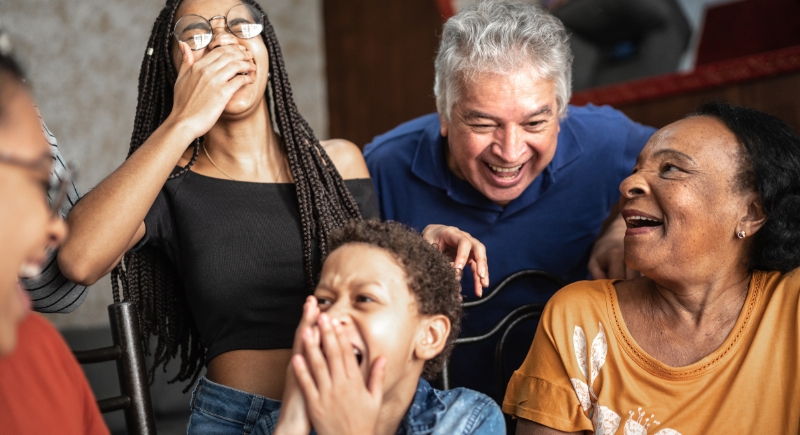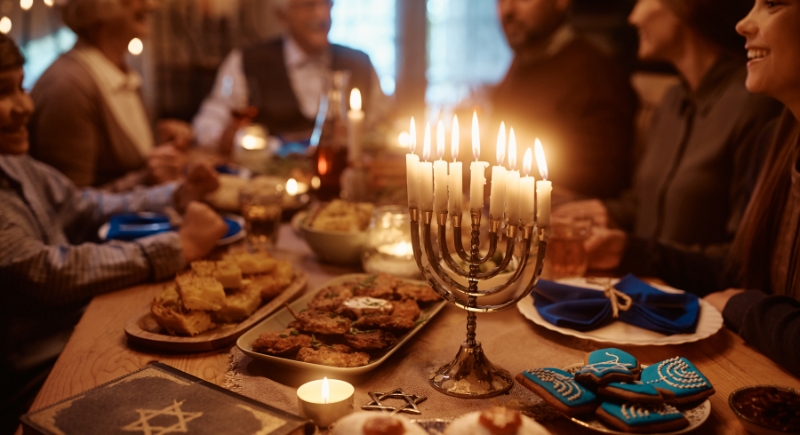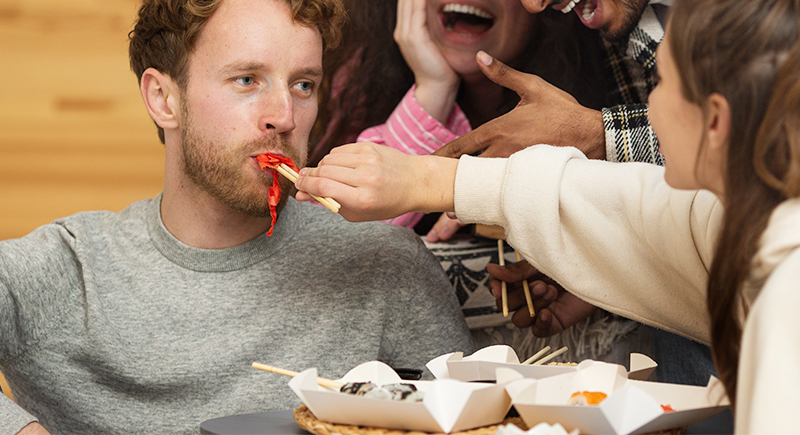10 Worst Family Traditions That Were Just Trauma in Disguise
Family traditions are supposed to bring people closer, but sometimes, they’re just repackaged stress, passed down like a casserole no one asked for. They only make sense once you realize they were never about fun in the first place. Here’s a rundown of 15 “traditions” that probably should’ve come with a therapist instead of a side dish.
Shaming Someone for Laughs

Credit: Getty Images
There’s a fine line between teasing and targeting, and some families cross it every year without blinking. The same person ends up as the punching bag, as if it’s a tradition to remind them of that one awkward moment from 2012.
Turning Bodily Milestones Into Public Events

Credit: Getty Images
Instead of celebrating personal changes quietly, some families treat puberty like a spectator sport. Boys might get rewarded for body hair, while girls face slaps or awkward parties when they start menstruating. These rituals turn private moments into performances.
Mandatory Participation in Bizarre Rituals

Credit: Getty Images
Every family has their quirks, but things get tricky when participation isn’t optional. Maybe it’s a bizarre chant before dinner or wearing something ridiculous “for tradition’s sake.” Saying no feels like a betrayal, and suddenly, conformity starts masquerading as love.
Emotional Labor Disguised as Role-Playing

Credit: Getty Images
You’re the go-to fixer, the one everyone vents to. At first, it might feel like trust. But over time, it becomes emotional labor that no one else is doing. What looks like a personality trait is often just survival mode turned habit.
Putting a Price on Togetherness

Credit: Canva
Charging family members to attend holiday meals, asking for payment before you can eat, or assigning dollar values to food items might seem like a system to “be fair.” But when love and hospitality come with a receipt, bonding becomes a transaction and makes warmth feel conditional.
Making Fun of People’s Fears or Flaws

Credit: freepik
Some traditions involve joke gifts or games that mock people’s quirks—buying bird-themed items for someone afraid of birds or serving a hated dish “just for laughs.” These traditions condition people to tolerate discomfort quietly and show gratitude even when they’re the punchline.
Forcing Celebration Through Drinking

Credit: pexels
Mixing drinking with rituals—like taking one after singing to a holiday figure or turning religious moments into drinking games—can blur the lines between tradition and pressure. In some families, participating isn’t optional, and declining is frowned upon.
Public Performance as a Path to Belonging

Credit: Canva
Families that require singing, dancing, or dramatic gestures in front of everyone for birthdays or holidays often blur the line between inclusion and performance. Their kids grow up believing love must be earned through entertainment.
Making One Person Do All the Work

Credit: pexels
Every gathering has that one person who somehow becomes the designated planner, chef, decorator, and dishwasher—whether they volunteered or not. It quickly turns into exploitation when no one else steps up. Holiday magic fades fast when one person is stuck in the kitchen while everyone else lounges with a drink in hand.
Ritualized Discomfort as “Bonding”

Credit: Getty Images
Eating something disgusting, enduring freezing hikes, or tolerating physical pain for the sake of “fun” becomes a badge of honor in some families. But these shared trials often send the wrong message: that ignoring your limits is how you earn love and acceptance.
Making People Perform Gratitude

Credit: pexels
Forced thank-yous, over-the-top speeches, and gratitude rituals often seem like good manners. But when people are expected to deliver emotions on cue, it becomes theater. Appreciation should come naturally, not be demanded with an emotional script.
Keeping Secrets for the Sake of Appearances

Credit: freepik
In families where dysfunction is a regular guest at the table, it’s often “tradition” to keep up appearances. Everyone knows not to mention specific topics, call out harmful behavior, or deviate from the script. This only teaches people to swallow discomfort in silence.
Turning Private Pain Into a Group Event

Credit: freepik
Some families have made a habit of turning real pain into something communal—extraction of medical conditions, forced “check-ins,” or group decision-making about someone’s struggles. While framed as support, this often blurs privacy lines. Support becomes surveillance, and love feels conditional on how well someone conforms.
Competitive Suffering as a Badge of Honor

Credit: freepik
Who had the roughest week? Who sacrificed the most? In some families, struggle becomes a contest, and hardship gets handed out like merit badges. This weird economy of pain turns vulnerability into weakness and teaches people to hustle for sympathy instead of healing.
Protecting Elders at the Expense of Everyone Else

Credit: freepik
It’s common to tiptoe around a difficult elder, avoiding certain topics, absorbing rude comments, or enduring controlling behavior, for the sake of “respect.” Protecting one person’s comfort by sacrificing everyone else’s creates a family culture where power goes unchecked.